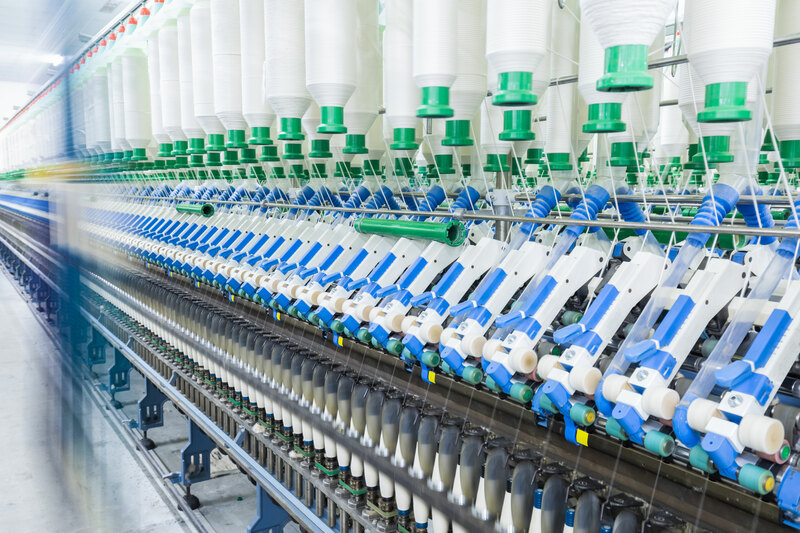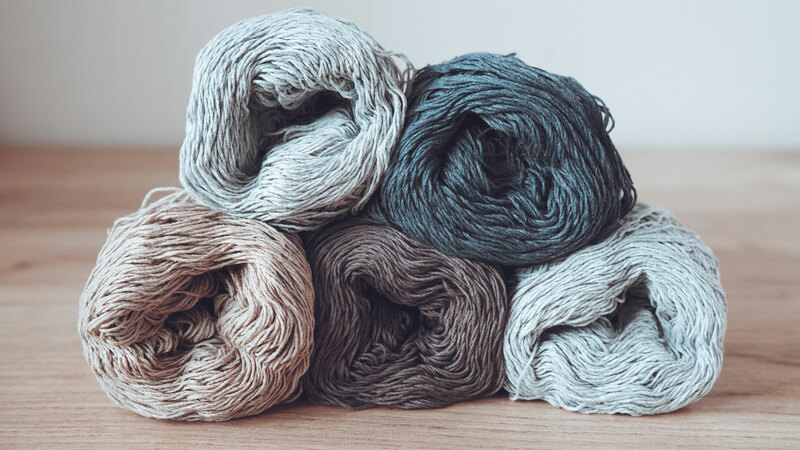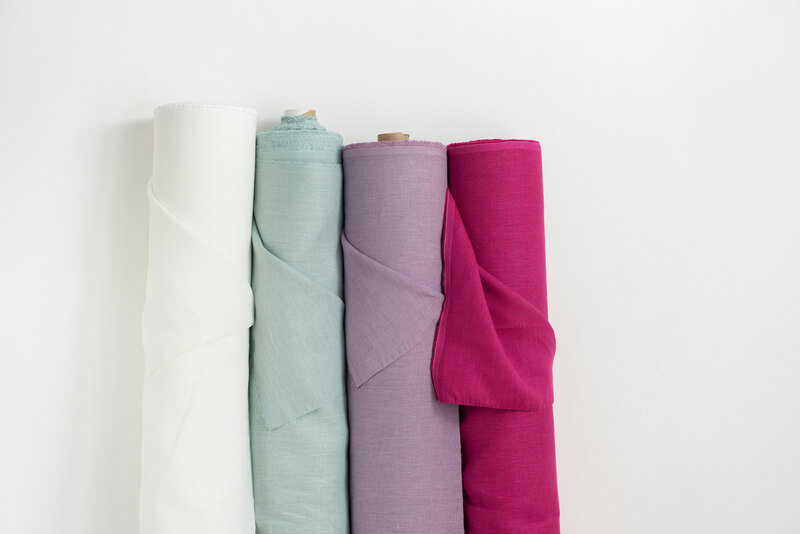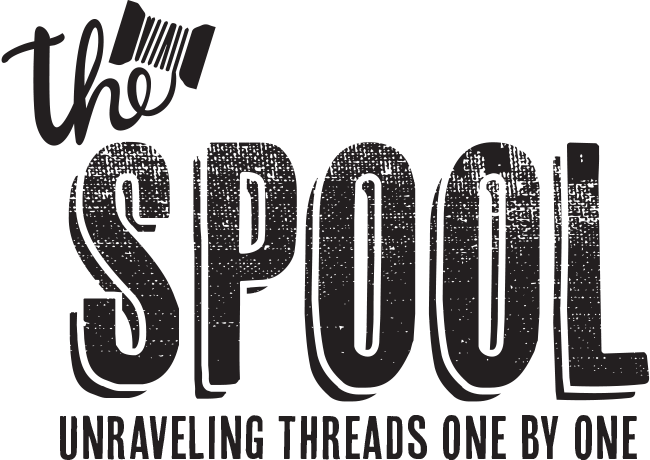
Ringspun vs Regular Cotton
By ShirtSpace | Aug 23, 2019 | Updated Sep 11, 2024When it comes to t-shirt shopping, there are a variety of fabrics to choose from. One unwaveringly-popular option is cotton. But, even cotton has a handful of variations to be aware of.
With that in mind, we're going to cover the difference between ringspun cotton and regular cotton. The short of it is that ringspun cotton is softer, higher-quality, and more durable, but we're here to tell you why.
What is Regular Cotton?
The process of making regular cotton consists of twisting together soft vegetable fibers into yarn. The yarn is then woven together to create regular cotton material. This type of cotton is the most widely used, though ringspun is becoming increasingly popular. Manufacturing regular cotton is less expensive than ringspun, and while it offers breathability, the softness pales in comparison to ringspun cotton. Even still, regular cotton continues to be an industry staple and is widely sold in both the wholesale and retail markets.

Image Credit: Envato - chuyu2014
What is Ringspun Cotton?
The term ringspun was coined because of the process used to manufacture this type of cotton. The yarn that is created for ringspun cotton is spun in a way that produces stronger, longer strands that are soft, extremely durable and free from the rough texture of standard raw cotton. The process of continuously spinning, twisting, and thinning the cotton strands is what yields long, soft strands. Additionally, during this process, the threads are compacted in a way that produces a very strong and durable material.

Image Credit: Envato - TaniaJoy
Which is Best- Ringspun vs Regular Cotton?
When the time comes to determine which type of cotton is the “best”, it depends entirely on what you'll be using it for. Both types of cotton are wildly popular for very good reasons. If you’re looking for a new favorite tee that’s fashionable and soft, or an option for your new clothing line, ringspun cotton tees are your best bet. But, if you’re looking for a quality t-shirt for a fundraiser, donation, or simply want a standard t-shirt to withstand the wear-and-tear of lots of use, you can’t go wrong with regular cotton.

Image Credit: Envato – OxanaDenezhkina
As with any purchase, you must determine what’s most important to you, what you’ll be using your shirts for, and how much you want to spend. Though ringspun cotton is generally a bit more expensive, the added cost is minimal and will not break the bank. As the old adage goes, buy nice or buy twice.
TO RECAP:
Regular Cotton
-
Most widely used
-
Less soft than ringspun
-
Less expensive to manufacture
-
Durable
Ringspun Cotton
-
Manufacturing process produces stronger, longer strands
-
Very soft
-
Typically lighter weight than regular cotton
-
Breathable


Comments
Astyork05/06/2024 07:30 am
ShirtSpace's comparison of ringspun vs. regular cotton is a valuable resource for anyone seeking to understand the differences in fabric quality. The clear explanation and visual aids make it easy to grasp the advantages of ringspun cotton, especially in terms of softness and durability. It's fantastic to have a platform that educates consumers on the nuances of textile choices.
Reply
ShirtSpace05/06/2024 03:55 pm
Hi, Astyork! We are so glad you found our blog useful. Thanks for reading!
Reply
Arlene Bich05/12/2025 06:41 pm
Question; I am wondering if the ringspun size of MEDIUM would be comparable for comfort to a LARGE in the regular cotton. For regular cotton it’s fine, but don’t want the Ringspun to feel too big!
Reply
Howard or Arlene Bich. 05/19/2025 09:12 pm
Where will my order be shipped from? Last week I placed an order. Sent a check for $45. For Pheasant t-shirt.
Reply
ShirtSpace05/20/2025 05:42 pm
Hi Howard and Arlene! Thanks so much for placing an order with us. Our marketing team manages blog comments, so we are unable to look into which warehouse fulfilled your order. However, our friendly, U.S.-based Customer Service Team can answer that question for you. They can be reached M-F 6:30 AM – 4:00 PM PST by emailing [email protected], calling (877)285-7606, or using the chat feature on our site (little blue icon in the bottom right corner of the screen).
Reply
ShirtSpace05/13/2025 06:40 pm
Hi, Arlene. Thanks for your question! In general, ringspun cotton doesn't run significantly larger than regular cotton, but it can feel a bit more fitted due to its softer, smoother weave. If a large in regular cotton fits you just fine, a medium in ringspun might feel a bit snug depending on the brand. Ringspun shirts can vary in fit, so we recommend checking the specific sizing chart for the brand you're considering. If you prefer a roomier fit, it’s safer to stick with a large in ringspun as well. Additionally, cotton is so prone to shrinking when exposed to any bit of heat, so we recommend always going with a bit larger size, that way you can accommodate for any inventible shrinkage.
Reply
Jumac Manufacturing03/12/2024 06:52 am
This blog post was very informative! The differences between ringspun and regular cotton were clearly mentioned. Thanks for including the details about thread count and ply - that was really helpful!
Reply
Olivia01/29/2025 06:37 pm
I missed the mention of thread-count and ply, and I'm interested in that. Where can it be found? Thank you!
Reply
ShirtSpace01/29/2025 06:44 pm
Hi, Olivia! Thanks so much for reading our blog. Although we do not have any articles specifically about ply or thread count, We think you will enjoy our article about GSM: https://www.shirtspace.com/blog/what-is-gsm-in-fabric We will be sure to add these topics to our blog queue for the future!
Reply
ShirtSpace03/12/2024 03:42 pm
Hi, Jumac. Thank you so much for reading our blog, and leaving a nice review. We are glad you found value in it.
Reply
Hugo Alvarez03/04/2024 05:27 am
I have several questions now: 1. What's "better": long-staple cotton that wasn't ringspun, or a short-staple cotton that was ringspun? I am very familiar with Pima and Supima Cottons, and I love them. I'm wondering if a cheaper short-staple cotton that was ringspun can compete with these longer-staple cottons that wasn't ringspun. 2. How does thread count and/or number of plys factor into the goodness of a textile? 3. Can a short-staple cotton be made into a high threadcount fabric?j
Reply
ShirtSpace03/05/2024 10:59 pm
Hi, Hugo. Great questions! We appreciate your interest in understanding the nuances of textile quality and how they relate to your preferences 1. The answer is not a simple one, as it depends on various factors including the intended use, personal preferences, and budget considerations. While superior materials like Pima and Supima are renowned for their softness, the ring spinning process has become so refined over the years, it can definitely be comparable in some cases, and certainly a more cost-effective alternative. 2. Thread count refers to the number of threads woven into a square inch of fabric, typically measured by counting the number of warp (lengthwise) and weft (crosswise) threads. A higher thread count generally indicates a smoother, softer fabric with better breathability. But it's also important to point out that thread count alone doesn't determine the quality of a textile. Aspects such as quality of fibers, weaving techniques and finishing processes impact the overall resulting product. The number of plies refers to the number of yarns twisted together to create a single thread. More plies can enhance strength and durability, but excessive plies may result in a thicker, heavier fabric. The number of plies on their own do not dictate the quality and softness of the fabric, but do play a part, in tandem with the thread count, type of fiber, techniques used during manufacturing, etc. 3. Yes, a short-staple cotton can indeed be made into a high thread count fabric. While long-staple cotton fibers are typically preferred for high thread count fabrics due to their length and strength, advancements in textile technology and weaving techniques have made it possible to produce high-quality, high thread count fabrics using short-staple cotton as well. Ring spinning, as mentioned earlier, is one method that can improve the quality of short-staple cotton fibers, allowing them to be woven into finer, denser fabrics with higher thread counts. We hope this information helps you gain better insight about these fabric types and thank you for reading our blog.
Reply
Jennifer01/16/2024 04:25 pm
Hello! Is ring spun cotton more or less breathable than regular cotton or do they breathe the same? I have been noticing lately that tops that are tagged as being 100% do not breathe for me like rayon and cotton of the past. I get warm very quickly. I do hope to hear from you. Thank you very much!
Reply
Leslie 01/29/2024 05:17 pm
You might like shirts with a bamboo component. much cooler for hot climates or hot ladies.
Reply
ShirtSpace01/16/2024 10:22 pm
Hi, Jennifer! Overall, we find (and hear) that ringspun cotton is more breathable than standard cotton. This is because it usually more lightweight. Rayon is fairly breathable due to its lightweight nature, but not as much as cotton. Sometimes the breathabilty is also tied to the fabric weight. We recommend looking for "lightweight" tees, and avoid any heavy cotton, even ringspun. Thank you for taking the time to read our blog, and here is our selection of lightweight ringspun cotton tees: https://www.shirtspace.com/t-shirts/lightweight/ringspun-cotton
Reply
Jumac Manufacturing12/20/2023 07:10 am
What an insightful read! Your breakdown of ringspun vs. regular cotton was enlightening. I appreciate the clarity in explaining the nuances, making it easier to choose quality fabric. Kudos for such a helpful comparison!
Reply
ShirtSpace12/20/2023 05:08 pm
Hi, Jumac. We are so happy to hear that you found value in our blog article. Thanks for reading!
Reply
Mike11/20/2023 08:54 pm
Is "ring spun cotton" always 100% cotton? Or can ring spun cotton be a blend? Thanks!
Reply
ShirtSpace11/21/2023 04:23 pm
Hi, Mike! Ringspun cotton is always made from 100% cotton. However, ringspun cotton can be used within a blend (for example, the Bella+Canvas 3001CVC is made from a blend of combed & ringspun cotton as well as polyester). We hope this cleared up your question about ringspun cotton. Thanks for reading our blog!
Reply
Keasha Bellamy 09/01/2023 10:10 pm
I normally get cotton tshirts, and I stretch them out a little before I put on to make them a little bigger. I’ve been hesitant to purchase ringspun cotton because I’m scared I won’t be able to stretch it. I know the cotton poly blend I can’t stretch so I stay away from those.
Reply
ShirtSpace09/05/2023 05:32 pm
Hi, Keasha! First off, thank you so much for taking the time to read our blog! Ringspun cotton typically has more stretch to it than your average cotton that is not ringspun. Standard cotton tends to be more stiff. So, we think that a ringspun cotton tee will be a great choice for you if you like to stretch your shirts yourself. Also, you are correct about shirts with polyester in them not permanently stretching as much. Since polyester is a synthetic fabric, it does stretch, but usually it bounces back.
Reply
KHALIDA06/09/2023 05:17 pm
Hi. Thanks for your information. Learnt something new today. I am wearing my son's ring spun tee with embroidery on saying "ringspun". I am his mother.
Reply
ShirtSpace06/09/2023 05:53 pm
Hello, Khalida. Thank you so much for ready our blog. We are glad you found value in our content. Take care!
Reply
Fallon05/16/2023 03:33 am
Is there any information you can share regarding shrinking behavior? I'm used to ordering a size up in 100% regular cotton t-shirts because they shrink so much. I don't know what to expect with ringspun, though.
Reply
ShirtSpace06/02/2023 10:25 pm
Hi, Fallon! We have another blog that we think you might find useful to help you care for your ringspun cotton shirts: https://www.shirtspace.com/blog/cotton-clothes-shrinkage You can also try shopping "pre-shrunk" t-shirts, which you can read more about here: https://www.shirtspace.com/blog/what-is-pre-shrunk Or shop here: https://www.shirtspace.com/t-shirts/pre-shrunk We hope this helps! Thank you for reading our blog.
Reply
Pamela Markowitz03/26/2023 08:36 pm
Infinitely helpful information! Thank you for the short & sweet version of ring spun vs regular cotton, and to the reader who asked about how combed cotton fits into this. It’s helpful to know for not just t shirts, but for washcloths and towels too!
Reply
ShirtSpace03/27/2023 03:23 pm
Thank you for taking the time to read our blog, Pamela. And great point about washcloths & towels!
Reply
Celso Martell01/16/2023 10:22 pm
Nice explanations, thanks a lot!
Reply
Nic11/05/2022 08:42 pm
A lot of hoodies don’t have any or enough stretch in them to accommodate my broad shoulders. Would a ring spun hoodie have more stretch to it than a regular cotton one?
Reply
ShirtSpace11/07/2022 06:02 pm
Hi, Nic. Although ringspun cotton does tend to have a little more stretch than standard cotton (which is typically is a bit stiffer), we still do not think you will notice substantial stretch. We recommend opting for a cotton/poly blend, or a triblend, for a stetchy sweatshirt experience! A quick one that comes to mind that we like is the Bella+Canvas 3729: https://rb.gy/kxs8ka Thanks for reading and feel free to reach out to [email protected] if you need more help finding the perfect hoodie!
Reply
Gregg10/15/2021 02:08 pm
Are ring-spun always combed as well? Or is “combed” independent?
Reply
ShirtSpace08/18/2022 05:18 pm
Hi, Gregg! To answer your question about whether ringspun cotton is always “combed”, or if the “combed” portion is independent of “ringpsun”, you can definitely have a ringspun cotton shirt that is not “combed and ringpsun”. “Ringspun” refers to the process of continuously spinning, twisting, and thinning the cotton strands is what yields long, soft threads. This process also yields stronger, longer strands that are soft, extremely durable, and free from the rough texture of standard raw cotton. When it comes to the term “combed”, according to the top-selling blank apparel brand Bella + Canvas, “Combed and ring-spun cotton, the kind that BELLA+CANVAS uses on all our tees means that cotton fibers are spun then combed through to remove impurities while ensuring it stays soft to the touch. Fewer impurities mean a smoother surface to print on.” Short and medium-sized strands are pulled out through the combing process, leaving just long and strong strands. So in conclusion, although ringspun cotton isn’t always combed, combed cotton is usually ringspun. Here is a fantastic video that we love, explaining these types of cotton tees and a few more: https://www.youtube.com/watch?v=kPUMT4N8IEo We hope this cleared up the terms “ringspun” and “combed” for you a bit better when it comes to cotton tees. Please feel free to reach out to our Customer Service Team if you have any further questions and I would be happy to assist.
Reply
Mark10/10/2021 01:58 pm
Thanks for the information. There is a better understanding now since ordering shirts online is often a “shot in the dark” process.
Reply
ShirtSpace10/13/2022 08:29 pm
Hi Mark! We are so happy to hear our blog gave you a better understanding! Thank you so much for taking the time to read and comment!
Reply
Leave a Comment
We take your privacy seriously and will not share or publish your email address.
This site is protected by reCAPTCHA and the Google Privacy Policy and Terms of Service apply.